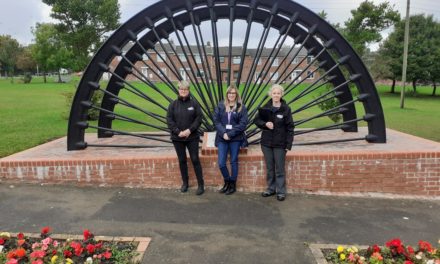Services for children and young people with special educational needs and disabilities (SEND) in County Durham are improving, according to government inspectors.
A joint team from Ofsted and the Care Quality Commission reviewed education, health and care services provided across the area in January this year.
After assessing services and receiving feedback from more than 400 parents and carers, they found that organisations in the county have made progress in improving services since the inspectors’ last visit in January 2018 when some concerns were raised.
The latest report highlights a number of areas where positive changes have been achieved.
It found that the partnership between education, health and social care leaders is stronger than it was and that that there had been a determined focus on improving arrangements for identifying, assessing and meeting the needs of children and young people with SEND.
Durham County Council and health services are praised for their commitment to involving children, young people and their families in shaping services, with this work “contributing strongly” to improvement in SEND arrangements.
The report cites the Making Changes Together parent and carer forum, the Rollercoaster Support Group and eXtreme group of young people as examples of those that have been “instrumental in several significant developments since the initial inspection”.
The area’s participation strategy is praised for setting out “clear and helpful quality standards” for joint working for children and young people and their families.
The report also highlights that “children and young people with SEND and their families have increasingly strong and influential voices in the development of the area’s strategic plans” and that there has been a “marked reduction” in waiting times for specialist autism assessment and speech and language therapy assessment, with times now in line with national guidance.
The inspectors felt that previous concerns about the effective use of performance data to tackle weaknesses have been addressed by the development of new systems and strengthening of existing ones. Again, with children and young people featuring more prominently in this work.
This has resulted in the fact that “the area’s self-evaluation provides a clearer and more comprehensive assessment of how well SEND arrangements are working in County Durham”.
Commissioning decisions, service planning and performance monitoring are also better informed by the area’s analysis of education, health and social care needs, according to the report.
Overall, both the council and North Durham and Durham Dales, Easington and Sedgefield Clinical Commissioning Groups are praised for their “greater collective ambition” for service users.
Cllr Olwyn Gunn, Durham County Council’s Cabinet member for children and young people’s services, said: “Working closely with our partners across education, health and care, we’ve really focused on addressing the issues raised in the 2018 inspection and I am pleased that these efforts have been recognised by the inspectors.
“Our Local Offer website, for example, which provides a wealth of information for the families of children and young people with SEND and offers a first point of contact for many people has seen significant improvements over the past two years.
“Children, young people and their families have played in key role in shaping the changes that have been made and this is clearly acknowledged within the report. Last year, we carried out a consultation asking people what they thought of our plans for SEND services and we received an excellent response. This feedback provided has been invaluable to our work and, again, I am pleased that this was very clear to the inspectors.
“Going forward, it is crucial that the needs and views of service users and their families continue to be embedded at the heart of SEND provision in County Durham and I would very much like to reassure them that this will be the case.”
Nicola Bailey, chief officer of NHS North Durham and NHS Durham Dales, Easington and Sedgefield clinical commissioning groups, said: “An enormous amount of work has taken place since the original inspection to address the areas identified for improvement in 2018.
“It was pleasing that the inspectors noted the progress that had been made in our strategic leadership, use of performance data, co-production and joint commissioning to improve our offer for children and young people with SEND.
“We will continue to work in close partnership with Durham County Council to build on these improvements to ensure that all children and young people with SEND are supported to meet their potential.”
While the inspectors’ report highlights the range of improvements that have been made since their last visit, it also identifies areas where work is still needed.
It states the council and CCGs have not yet fully achieved their objective of improving understanding and awareness of SEND at every level. The inspectors also found that children and young people and their families continue to have very different experiences at schools and with individual health and social care services, with the quality of health advice remaining too variable and the quality of education, health and care assessments suffering from a lack of participation of some health professionals.
The report identifies that there are gaps in commissioned support following autism assessment but recognises that leaders from all organisations are aware that provision needs to be strengthened.
The SEND Strategic Partnership is now considering the report and is working on a new action plan to address the areas of further improvement identified in the inspection findings and from feedback from families.









